Uncategorized
Corruption: Officials Steal Aid Money To South Sudan
Published
4 years agoon
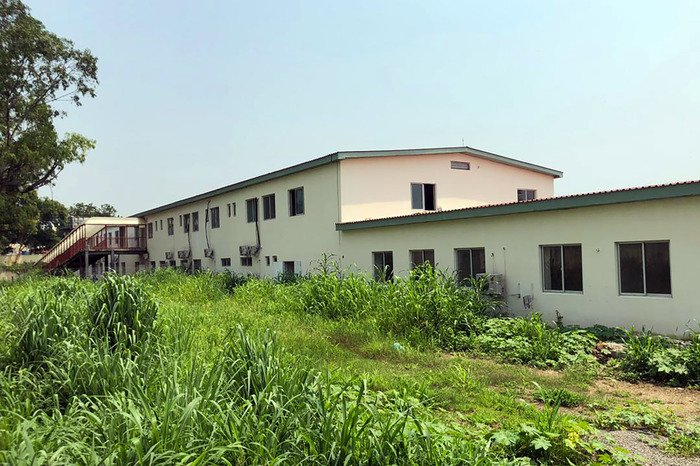
Aid packets were dropped in Kandak, South Sudan in 2018. South Sudan is one of the world’s top recipients of foreign aid, with many of its citizens relying at least partially on the international community to provide food and healthcare.
Freelance journalist covering Africa
When the pandemic struck, many feared South Sudan could be one of the hardest hit countries in Africa – years of conflict had hollowed out its healthcare system and the threat of famine was on the horizon.
Heeding the warnings, the European Union, the United States, and the World Bankchipped in more than $100 million for the COVID-19 response, while the IMF has given some $200 million in loans.
Worrying death toll projections have yet to materialise – fewer than 150 people have died of the virus in the past year despite a recent uptick in cases – but familiar patterns of alleged profiteering emerged after the first cases were reported.
A black market appeared for COVID-19 tests that were supposed to be free. An inflated contract was awarded to a company to renovate a hospital that still sits empty. And the government authorised one small outfit to produce hand sanitiser – while banning imports of the product as people scrambled to find supplies. The New Humanitarian found these and other examples after interviewing nearly 30 government officials, business owners, and aid workers, as well as reviewing documents, emails, and text messages as part of an investigation with Al Jazeera.
“Every time there is a crisis, the government ignores its citizens, relies on international aid, (and) doesn’t help its own people,” said Edmund Yakani, head of the Community Empowerment for Progress Organization, or CEPO, a civil society group in South Sudan.
South Sudan wouldn’t be alone in falling prey to alleged profiteering schemes linked to the pandemic. In Brazil, more than 1,500 criminal cases have been opened into coronavirus-related corruption, while the United States and Britain have been caught in scandals involving COVID-19 funds and equipment. But in South Sudan – one of the world’s top recipients of foreign aid – schemes that arose after the pandemic followed a familiar pattern: Donors respond to crises, and aid groups are left to shoulder the country’s humanitarian needs while South Sudan spends little on its own people.
About this investigation
After months of sifting through documents and hearing first hand accounts, worrying allegations have come to light in the world’s youngest country. …
That imbalance has rankled some and sparked fresh discussions about whether there is a better way to do aid in South Sudan – even though it is unclear whether funds for the COVID-19 response were misappropriated.
“The wealth of this country – from oil and elsewhere – bypasses its people, siphoned off in secrecy with no public accountability for how it is spent,” said David Shearer – the UN’s head of mission in South Sudan – in his final address to the UN Security Council in March. The international community, he noted, had failed to question its role in South Sudan’s continuing dependence on foreign aid. “True sovereignty means responsibility – being responsible – to really care, in a tangible and demonstrable way, for all the nation’s 12 million citizens,” Shearer said.
Some government leaders have said such sentiments smack of colonialism.
“Our friends when they come, they come with high assumptions (that) they know it all,” said Mayen Machut Achiek, the health ministry’s undersecretary.
Alex McBride/Al Jazeera
A suspected COVID-19 patient sits in a Juba hospital on 24 April, 2020. Early predictions were dire, but fewer than 150 people in South Sudan have died from the coronavirus, although cases are rising. In January, the UN’s emergency aid coordination body, OCHA, released a worrying report, detailing an overview of South Sudan’s bleak humanitarian situation and noting escalating violence against aid workers.
Renewed fighting last year had resulted in the relocation of aid workers, ambushes of humanitarian convoys, the looting of lifesaving supplies, and the targeting of relief workers based on ethnic identities, the report noted.
Opaque bureaucratic and regulatory snags had also resulted in “diverted resources that would have otherwise been used for lifesaving supplies”, the report noted.
South Sudan was already grappling with multiple crises when the pandemic hit.
Read More → South Sudan peace deal deadline looms as questions linger on financial transparency The announcement of a long-awaited transitional government in February 2020 was quickly overshadowed by intensified local level fighting as well as floods.
The first cases of COVID-19 appeared in April 2020 and were traced to UN workers – sparking a backlash against the UN and other aid groups.
The same month, the World Health Organization became aware of allegations that some Ministry of Health officials were charging for COVID-19 tests when they were supposed to be free, according to a WHO email received by The New Humanitarian in July and shared with Al Jazeera.
Tests were offered for $50, while test certificates needed for ground and air travel were sold for $400, a UN worker said in a text message sent to other aid workers in July and seen by reporters. Speaking on behalf of the government, Angelo Goup Thon and Mathew Tut Kol, government officials involved in the coronavirus pandemic response, denied the allegations.
The health ministry also handpicked at least 500 largely untrained staff from the ministry to work on the response and be paid between $450 and $1,500 a month with donor funds, three senior humanitarian officials involved in the response told reporters, speaking on condition of anonymity to ensure their ability to keep working in the country. Although it’s not uncommon to hire untrained workers in emergency responses – the same was true with the Ebola response in the Democratic Republic of Congo – many of the proposed salaries were triple to what skilled civil servants would normally earn, and the government has failed in recent years to pay health workers for months.
The International Organization for Migration, which had been helping the government to perform health screenings on travellers, was among the UN agencies that received a list of requested workers from the government. The Health Ministry followed up with a verbal request to pay salaries of up to $2,000 a month, according to an internal IOM email seen by reporters. The email noted that government discussions were heated, including “shouting and verbally abusing IOM staff on (the) phone and in-person”.
In response to questions from reporters, the IOM confirmed in an email to The New Humanitarian on 26 March that the government had asked for staffing allowances for COVID-19 responders, as well as the recruitment of additional staff.
“… IOM communicated to the Ministry that the set provisions and budgets of the project could not be amended and that no additional staff would be hired or additional allowances paid,” said IOM spokesperson Safa Msehli, adding that passengers at Juba International Airport were now being screened by the Ministry of Health. Kol, part of the government’s COVID-19 response team, said people chosen for the response weren’t selected for their political connections. However, he acknowledged that many lacked training – something the government was addressing, he said.
The International Medical Corps, meanwhile, decided to send its lead medic home to Nigeria in December after reporting that he had been allegedly threatened by Thuou Loi, South Sudan’s then-director general of international health and coordination.
When asked about the medic, Loi told reporters the allegations were “misleading by all accounts’ ‘, but he wouldn’t say if he requested that the medic leave the country. IMC’s country head, meanwhile, wrote to South Sudan’s health minister in December, saying that the situation was “unsettling,” according to the IMC letter seen by The New Humanitarian and shared with Al Jazeera.
This isn’t the first time that claims of corruption and COVID-19 have overlapped.
Selected cases curated by Izzy Ellis. The letter was not provided to reporters by IMC, and the organisation also declined to give any details about the alleged threats or incident.
Achiek, the health ministry’s undersecretary, said it was “not acceptable” if aid workers had been threatened, but that he didn’t like being “manhandled” by aid partners.
Donors have largely provided most of South Sudan’s healthcare funding for years.
In the 2019-2020 budget, South Sudan’s government allocated nearly $14 million to the Ministry of Health, but a separate government report detailing official expenditures shows that only $3 million of that had been received nine months into the fiscal year.
Médecins Sans Frontières alone spent more than 85 million euros on health across 19 locations in the country in 2019. After the pandemic struck, South Sudan allocated $5.48 million for the response from 1 April through 30 September 2020, according to government documents shared with reporters by a government official.
Of those funds, $3.8 million in contracts was awarded to a South Sudanese company with Lebanese and South Sudanese shareholders, AFK Concept Ltd.
As part of pandemic preparations, the company was meant to renovate the Dr. John Garang Infectious Disease Center in Juba, according to documents seen by The New Humanitarian and shared with Al Jazeera.
Part of that amount included $22,500 for landscaping and $168,000 for painting – costs nearly double those of other companies reporters contacted for estimates of similar work.
The roughly 250-bed facility was meant to be the main hospital for COVID-19 patients. In December, it was still being used largely for storage. Hospital staff told reporters it failed to meet the needs of an infectious disease centre, including too few toilets and structures that were inadequate to quarantine infected patients.
Attempts to reach out to AFK went unanswered. An email sent to AFK in March bounced back, several text messages and phone calls to one of the company’s shareholders went unanswered or did not go through, and repeated calls to AFK’s office in Juba went unanswered. The health ministry called the amount allocated for the renovations “excessive”, and said in December that “nobody has been paid anything so far”.
However, the government contract and payment details – shared with reporters by a government official who requested anonymity – tell a different story.
One document noted that $1.4 million was paid as the first instalment for equipment and supplies, while some $2.4 million was directly disbursed “through a check issued by the Ministry of Finance and Planning in the name of the AFK CONCEPT LTD”.
The $3.8 million awarded to AFK was also noted in a separate letter from the finance ministry to the health ministry in April.
While every country was scrambling to buy hand sanitiser, South Sudan made it even harder by suspending imports and authorising one domestic company to produce it. The Drug and Food Control Authority gave Sinco Medical exclusive authorisation to manufacture and distribute the sanitiser, according to several importers and one UN official familiar with the agency’s reported directive, who spoke to reporters and requested anonymity for safety fears. The authorisation letter was shared with The New Humanitarian by the watchdog group The Sentry.
In March 2020, the Drug and Food Control Authority told a businessman and his colleagues they wouldn’t be allowed to import 100,000 bottles of hand sanitiser from Kenya but instead had to buy from Sinco.
The man asked not to be named because he feared for his safety. He said he hadn’t faced such an import ban in five years of working in South Sudan.
Charles Acaye, owner and chief executive officer of Sinco – a medical supplies importer – said the government’s aim was to promote domestic business.
Several civilians across the country told reporters they struggled to find sanitiser months after coronavirus cases started to emerge. Prices had soared more than tenfold, according to a May report by the Sudd Institute, a local think tank that has researched the economic consequences of COVID-19.
The head of the Drug and Food Control Authority did not respond to repeated requests for comment. The allegations of profiteering come as South Sudan appeals for more than five million doses of COVID-19 vaccines – some 132,000 have already arrived – but some in the international community have also started to ask whether the government should start doing more for its people.
Elizabeth Shackelford, a former US diplomat in South Sudan, said the time to put better controls on foreign assistance to the country would have been in 2011, when it became the world’s newest independent state.
“It’s much easier to build in a practice of accountability from the start,” said Shackelford, now a senior fellow on US foreign policy at the Chicago Council on Global Affairs. “We have long tended to turn a blind eye to it.”
The New Humanitarian Investigations Editor Paisley Dodds, freelance editor Sharon L. Lynch, former TNH investigative intern Izzy Ellis, and freelance journalist Michael Gibb contributed to this report from London.
An investigation by
At a glance: COVID-19 corruption charges
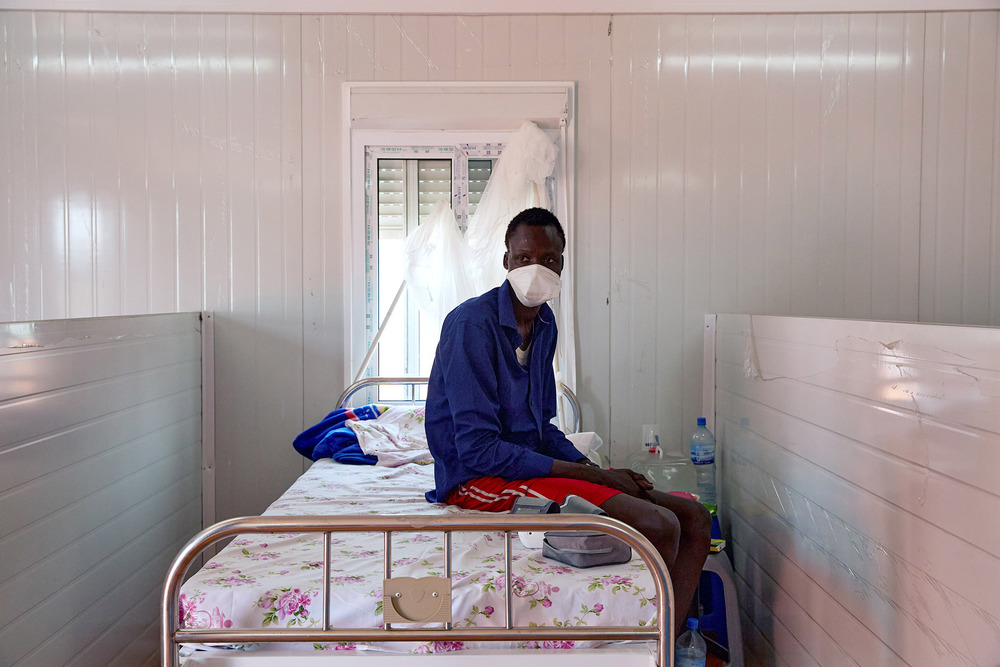
Aid tensions
Fraud’s familiar patterns
COVID-19 corruption claims around the globe
Hospital stands empty
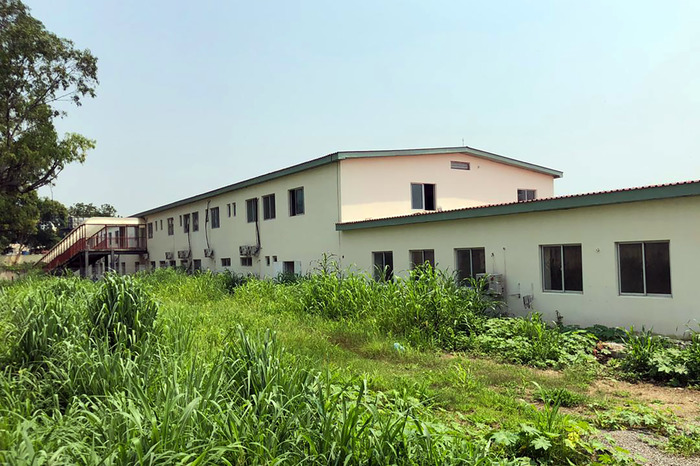
Hand sanitiser monopoly
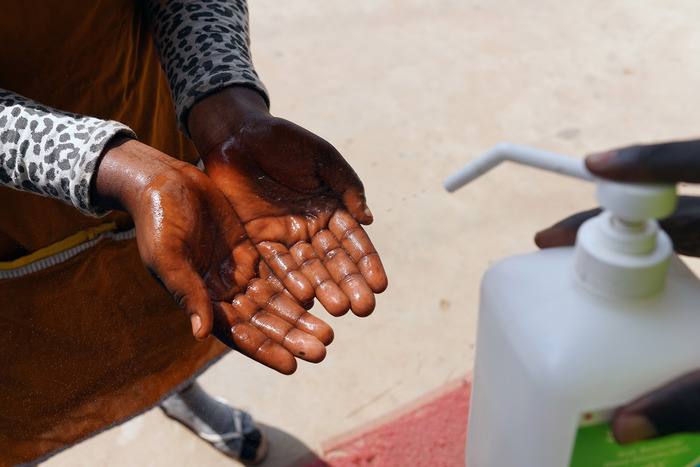
Kenya Insights allows guest blogging, if you want to be published on Kenya’s most authoritative and accurate blog, have an expose, news TIPS, story angles, human interest stories, drop us an email on [email protected] or via Telegram
📩 Got a Tip, Story, or Inquiry? We’re always listening. Whether you have a news tip, press release, advertising inquiry, or you’re interested in sponsored content, reach out to us! 📬 Email us at: [email protected] Your story could be the next big headline.

You may like

DCI Denies Custody of Missing Blogger Ndiangui Kinyagia, Urges Surrender Amid Public Outcry

The Evolution of CSR at Mozzart Bet Kenya

Why Kenya Railways Boss Mainga’s Involvement in Joho-Jaffer Defamation Case Came Up in Court

Court Grants Children Born Out of Wedlock Right to Inherit Father’s Wealth

Mask Vendor Boniface Kariuki Dies, Family Confirms

How Nyandarua Gang Was Organized And Took Less Than 10 Minutes to Destroy Sh200M County Property In Gen-Z Maandamano

Omtatah Wins Case For Mohamed Jaffer As Joho Family Suffers Blow In Court Case Against Port Monopoly

Court Orders Arrest of Blogger Francis Gaitho

Zakhem International Accused of Sh537 Million Fraud, Faces Liquidation

MPs Plot to Impeach Murkomen Over Shoot-to-Kill Remarks Amid Gen Z Protests

UoN Academics Demand Action Against Faith Gitau and Beatrice Ndung’u Over Alleged Academic Fraud

From Billionaire to Broke: The Fall of Humphrey Kariuki’s Empire

How NCBA Software Engineer Opened Floodgates For Mobile Banking System Fraud

Kenya’s Gold Scam Pandemic: How Nairobi Became Africa’s Fake Gold Capital as Foreign Victims Lose Millions

‘They Inserted Things Into Me Down There,’ Ugandan Activist Agather Atuhaire Recounts Horrifying Ordeal in Tanzanian Custody

Ong’ondo Were’s Brother Claims State Had A Hand In His Assassination Exposing Kasipul’s Deadly Political Underbelly

“They Inserted Objects in My Rectum”: Boniface Mwangi Details Brutal Torture in Tanzanian Custody

PHOTOS: Diamond Platnumz Officially Marries Zuchu in a Secret Traditional Ceremony

EXCLUSIVE: How Corruption and Mismanagement Have Brought Kenyatta National Hospital to Its Knees

32 Petitioners Challenge Kindiki’s Position as Deputy President, Seek Gachagua’s Reinstatement
Most Popular
-
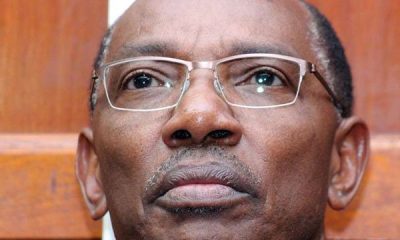
 Investigations1 week ago
Investigations1 week agoFrom Billionaire to Broke: The Fall of Humphrey Kariuki’s Empire
-

 Business2 weeks ago
Business2 weeks agoHow NCBA Software Engineer Opened Floodgates For Mobile Banking System Fraud
-
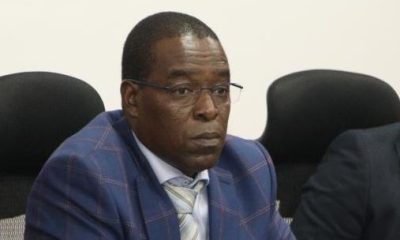
 Investigations1 week ago
Investigations1 week agoEXCLUSIVE: How Corruption and Mismanagement Have Brought Kenyatta National Hospital to Its Knees
-
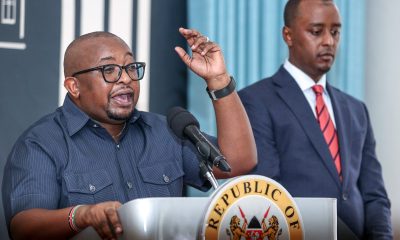
 Investigations1 week ago
Investigations1 week agoHousing PS Charles Hinga Entangled in Sh 2B Tender Scam
-
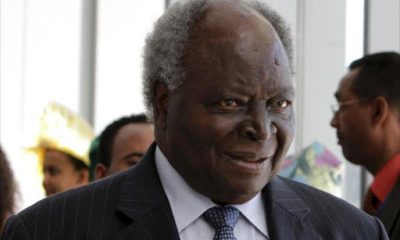
 Investigations7 days ago
Investigations7 days agoInside the Kibaki Estate Dispute: Power, Bloodlines & the Unfolding Legal Drama
-
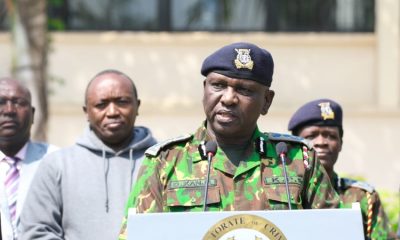
 News2 weeks ago
News2 weeks agoPolice Officer Who Shot Mask Hawker During Protests Arrested
-
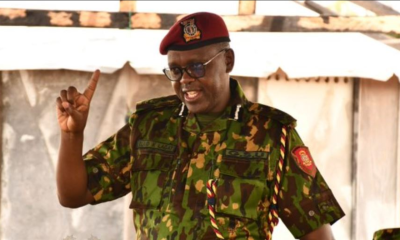
 Opinion1 week ago
Opinion1 week agoHow Deep is DIG Lagat in The Kenyan Deep State?
-
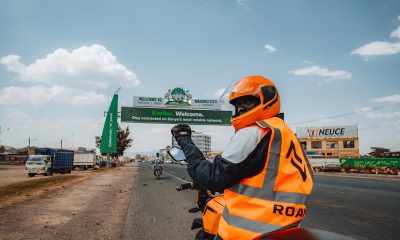
 News2 weeks ago
News2 weeks agoBoda Boda Rider Robbed in Nakuru—Only to Find His Attackers Were POLICE OFFICERS at the Station When He Went to Report!